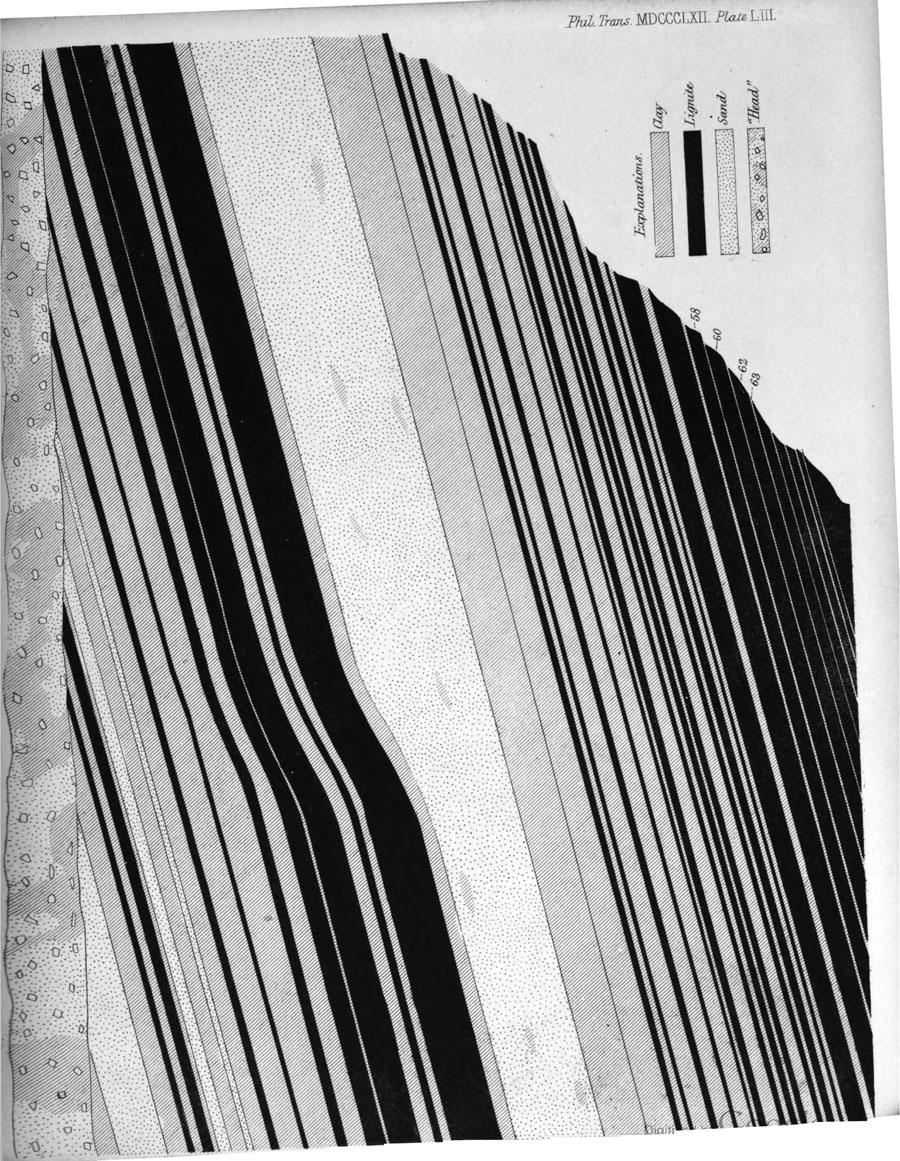on the lignites and clays, to which is annexed a glossary of plans

*
Plate LIII.
Is a section of the Bovey formation, in the plane of the Dip of the beds. It is drawn, from the measurements obtained in the first section,
given in the text (see p. 1022, &c.), on the scale of 1/168, or 1 inch to 14 feet. The Dip amounts to 12 1/2º, and is in the direction S. 35º W. magnetic. The beds in which fossils are found are those the numbers of which are placed opposite them in the margins.
illustrating William Bengelly (1812-94 *), communicated by Sir Charles Lyell, F.R.S. On the lignites and clays of Bovey Tracey, Devonshire.
Philosophical Transactions of the Royal Society of London 152 (1862-63): 1019-1038
Why?
Majestic image, found whilst searching something else entirely and ruminating about plans and their scarcity in my life. Here follows an index of plans,
the result of a google search through this present enormous volume of these Philosophical Transactions —
according to a plan 615
adopted the plan 582
another plan 890
as) my plans 338
on) communicating plans 333
a) convenient plan 351
not a convenient plan 351
the) following plan 176
his plan 353
justification of the plan 315
as my) plans became matured 338
the) normal plan 296
on my plan 333
plan of mine 981
on this plan 369
the) plan 199
the plan described 199
plan of observations 353
the) plan pursued 315
a) plan suggested 615
a) promising plan 980
seven-segmented plan 307
this plan 994
upon the plan 199
The word plan
(and its variations) appears in some 122 phrases in Macdonald’s Naval, Military and Political Telegraphic Dictionary (Whitehall, 1817) *. That is my count, so far anyway, and they will be presented here in their proper order and in due course.
2 December 2012
tags: in the plane of the Dip of the beds; clays; lignites; plans; sections; William Bengelly; John Macdonald (1817)